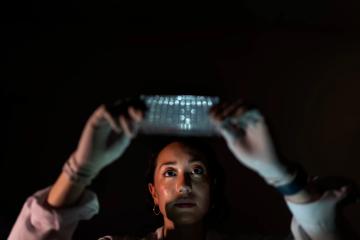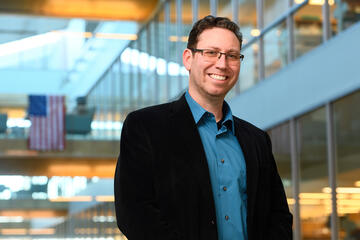Johns Hopkins research scientists Maximilian Konig and Jordan Green are working to alter—not just suppress—dysfunctional immune systems in ways that are proving to be more potent and more precise than current therapies, according to a new in-depth report published by The Associated Press.
Also see
Konig and Green are among the champions of this effort which The AP calls "a revolutionary new approach to treat rheumatoid arthritis, multiple sclerosis, lupus, and other devastating autoimmune diseases." Several of their JHU colleagues are also featured by The AP in a photo essay showing how scientists are painstakingly decoding the root causes of autoimmune disease.
The story says the Green team is relying on "mRNA to instruct certain immune 'generals' to curb the bad T cells and send in more peacemakers" to create a treatment that can be injected like a drug. The idea is that the right immune cells will "divide, divide, divide and make a whole army of healthy cells that then help treat the disease," Green says.
In a nearby lab, the Konig team's approach is to target "only that very small population of rogue cells that really causes the damage" rather than wiping out swaths of the immune system like some existing treatments. Researchers in his lab are trying to engineer T cell engagers that would only mark "bad" B cells for destruction, leaving healthy ones in place to fight infection.
"We're entering a new era," says Konig, adding that the new treatments offer "the chance to control disease in a way we've never seen before. … We've never been closer to getting to—and we don't like to say it—a potential cure. I think the next 10 years will dramatically change our field forever."
Read the full story on The Associated Press website.
Posted in Health, Science+Technology











